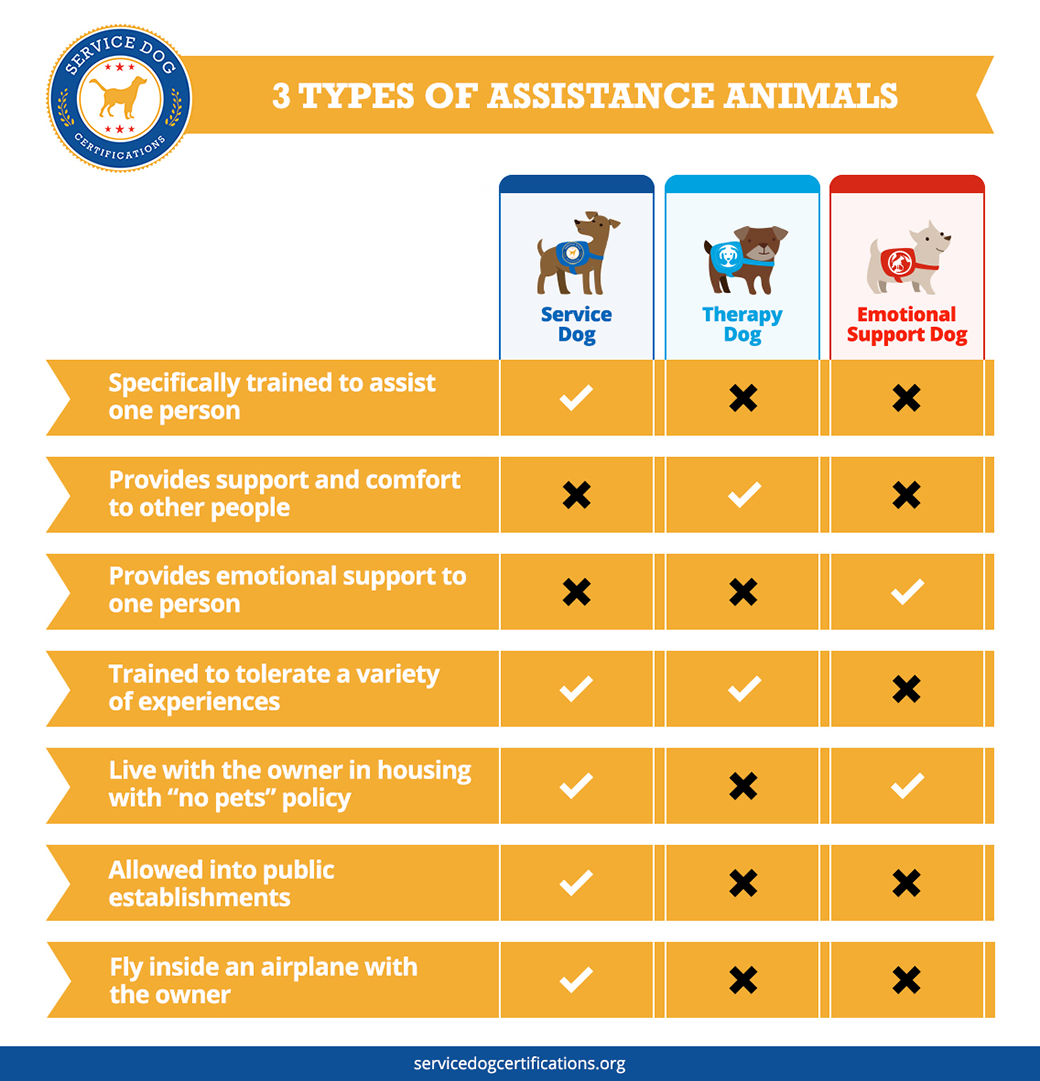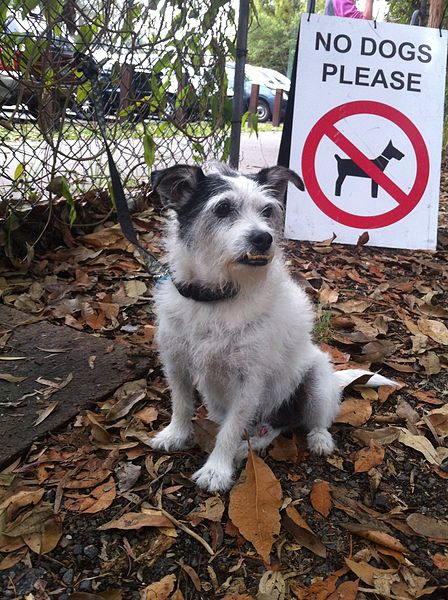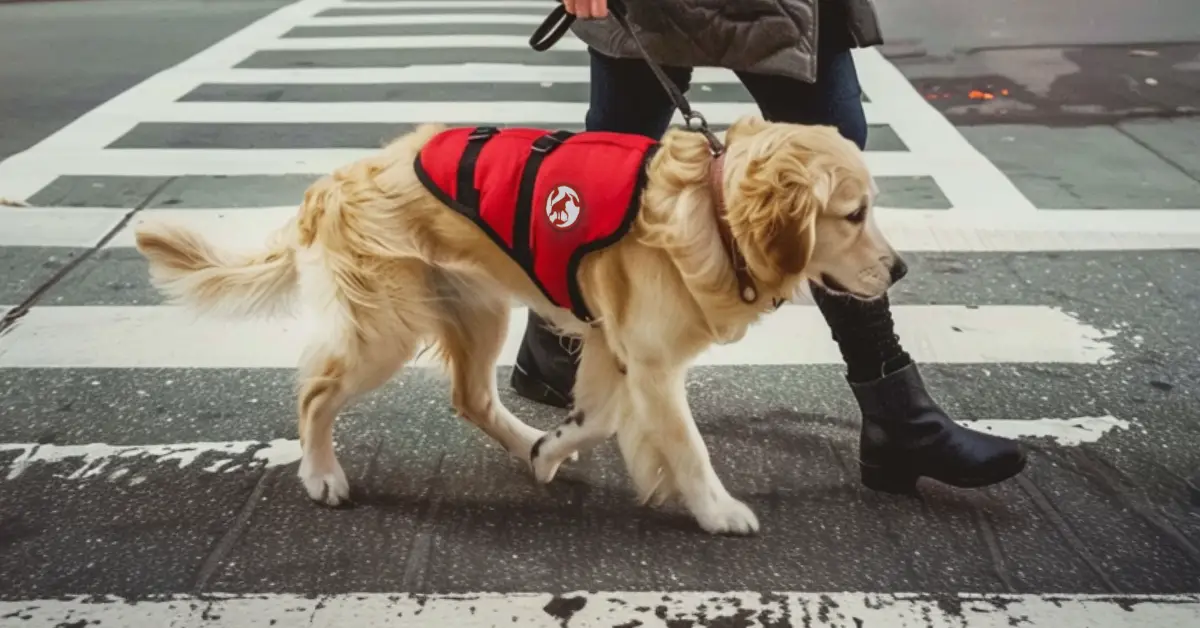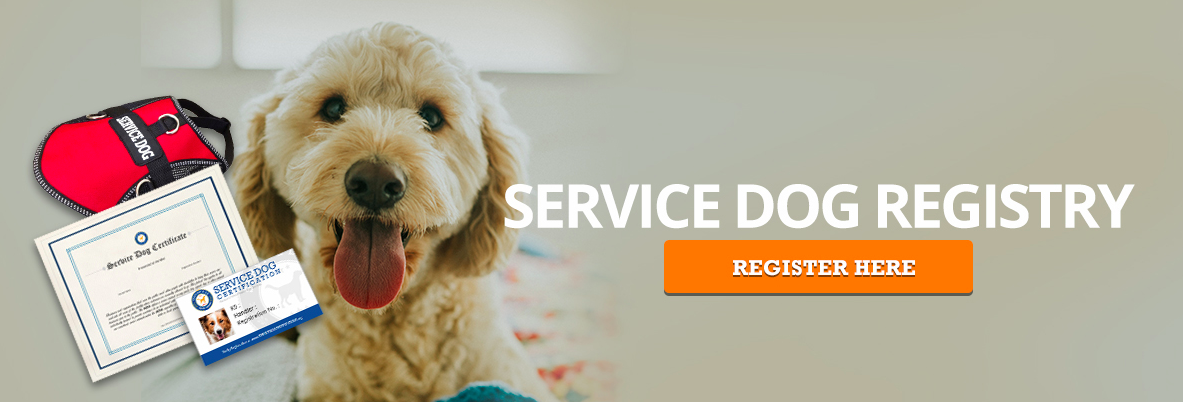Do I Need a Doctor’s Note for a Service Dog? – Service Dog Requirements

With the chaotic times we live in, many people are having difficulties both emotionally and mentally. When a person finds themselves in this situation, they may feel overwhelmed and even hopeless. When this happens, some doctors and mental health professionals are recommending the use of service dogs. However, the term “service dog” is becoming a “catch-all” term. Real service dogs are trained to perform a specific task for the physically or mentally challenged individual. This also includes psychiatric service dogs for folks that suffer from PTSD or bipolar disorder (to name a couple).
Why do professionals feel a service dog can be beneficial? It is simply the “nature of the beast.” Any pet parent knows the canine species has an innate ability to know when their owner is troubled. Sometimes just the presence of an animal in one’s life can bring a certain amount of comfort. However, when the dog is trained to perform a specific task that directly relates to alleviating the effects of the emotional or mental condition, it now becomes a partner in that person’s treatment plan.
Although doctors and mental health professionals can recommend a service dog, you do not need a doctor’s note in order to have a service dog.
Benefits of the Service Dog
The tasks performed by a service dog for the physically disabled and one for those with a mental illness are different.
For a physically challenged individual, a service dog will do what that person cannot do for themselves. This could include;
- Retrieving dropped items
- Opening doors
- Leading the person
- Being the person’s ears to hear alarms, doorbells, ringing phones, etc.
- Contacting a person if the individual is in an emergency situation
- Physically aiding the patient if having a seizure or other health issue
- Alerting the individual to drops in blood sugars or of an oncoming seizure.
The psychiatric service dog (PSD) is also trained but in a different capacity. The PSD can be trained to perform the following tasks;
- Help guide a person home after a dissociative episode
- Find a person or a place (like an exit) if the handler is having a panic attack and cannot call out for help.
- Do a room-to-room search for a person who suffers from PTSD and hypervigilance syndrome.
- Signal for certain sounds like smoke alarms (this is for the person that may be heavily medicated)
- Bring help in case the person is in hiding due to fright
- Fetch medication in an emergency
Can I Train my Service Dog?
Yes, by law you can train your dog to be a service animal; however, it is highly recommended to enlist the aid of a professional, especially for those tasks that you may not be able to physically teach the dog due to a disability.
Service Dog Proof for Landlords, Airlines, Restaurants, etc.
The American’s With Disabilities Act does protect the privacy rights of individuals with mental or physical disabilities. In fact, there are only two questions a landlord or an airline employee can ask you.
- Is the dog a service dog?
- What task(s) does the dog perform for you?
This is step one in dealing with folks that may give you a hard time in regards to your service animal.
The second step is to react to the situation in a calm manner. Remember, these individuals may not know your rights and are only trying to do their jobs. Explain your above reasons and if you do have a doctor’s note, this would be the time to present it.
The third step in this process is one you will hopefully not have to deal with; the flat-out refusal. Under the Fair Housing Act, you can ask a “no pets’ policy housing development to provide you with reasonable accommodation for your service dog.
If you are refused, even after you have presented a doctor’s note (only required for Emotional Support Animals), you can contact the Housing and Urban Development office in your area. These people are trained to fight for your rights.
If an airline refuses to allow your service dog into the cabin of the plane, you can contact a manager on the spot or call the individual airlines customer service number to file a complaint.
Recently a 13-year-old girl with cerebral palsy won her case in the supreme court to bring her service dog, Wonder, to her classes. After her parents exhausted all their options in dealing with the school directly, they decided to go to court. This win will hopefully begin to break down those barriers to help other students with their service dogs.
Service Dog Vest & Registration
It is not legally necessary to register your service dog, but it does offer some benefits. These include;
- Dog and handler are entered into a database
- Service dog vest is issued, making it easier for people to identify your canine as a “working dog”
- ID badges and a certificate are also issued for further proof
Service Dog or ESA?
If you do not need your dog to provide a specific task, but need to have it around for emotional purposes, then you may qualify for an Emotional Support Animal.
The ESA is there to provide comfort and support for the individual that suffers from an emotional or mental issue. To qualify for an emotional support animal, you must have a medical professional write you a note stating your need.
Once you have your ESA, you will not have the same rights as you would with a service dog. However, you are still eligible to live in “no pets” policy rentals with your ESA at no additional cost.

Share this image on your site
Know Your Rights
Know your rights when it comes to having a service dog. As long as your canine helper is aiding your life with a specific task that you cannot do for yourself, it can be considered a service dog. Whether you train it yourself or register it when it’s completed training, businesses, schools, airlines, and your landlord must recognize your canine as a working dog. If you do run into any ignorant persons, calmly explain yourself, then take your complaints to the appropriate entities.
About the Author: The writing team at Service Dog Certifications is made up of folks who really know their stuff when it comes to disability laws and assistance animals. Many of our writers and editors have service dogs themselves and share insights from their own experiences. All of us have a passion for disability rights and animals.
Related Articles

What Should You Do If You Are Discriminated Against Because You Have A Service Dog?
If you believe that you have been discriminated against because of your service dog, you will need to present facts in order to file a complaint. You should be able to do that by documenting what happened. Writing everything down will help because you won’t be able to remember all the details when you do get […]

Read More

Emotional Support Animal Laws
If you live in any state in the U.S. the Fair Housing Act is a federal law (meaning it applies across the country) that guards your rights as the owner of an emotional support animal. Your state might even have its own laws for extra protection. This guide will explain current laws and how they […]

Read More

Service Dog Requirements
The ADA defines a Service Animal as a dog individually trained to perform tasks or do work for the benefit of a person with a disability. A disability can be a physical impairment, but the ADA also includes mental illnesses that substantially limit one or more major life activities, such as depression, severe anxiety, or […]

Read More


Last year I certified my dog as a service dog I’m trying to run a house now and they’re saying I have to have a doctors written order for me to move in
We live at The Enclave apartments in Beavercreek Ohio. Moved here in Feb 2020. A service dog is with me. All required paperwork was given to The Enclave.
The pool and pool deck has not opened due to CV19 even though the band was lifted in May.
Twice a day we visit the pool area and deck walk around it and allow my service dog knowledge where I will be going with in the apartment complex. There is a NO DOG sign clearly posted.
We have been doing the same walk everyday weather. Permitted and if I am able to take a walk that day.
Today, while on our walk around the pool deck stretching and exercising while in the sun I was told that my service dog was not allowed in the pool area which also includes access to the exercise room and laundry room.
I explained as it was clear with the service vest on she was allowed to go were I go and enter a public building that I also enter.
I was told again No Dogs Allowed in the pool area and you need to take her out of here
Bonnie,
I believe, according to ADA, that you are correct. Your SD can go anywhere that you can, unless there is a health or safety issue. In this case, unless your SD is trying to go into the pool, it can be on the deck and in the pool area. I recently toured our new housing amenity area which had signs posted all over the place saying, “no dogs,” and took a nice long walk around with my SD and employees waved and nodded. Since we are buying there, I wanted to make sure I would not be confronted. I have an ID card and a letter from the organization I received her from, and I am trained along with her, but people usually just need to be informed. As for landlords, make sure to know the difference between ESA’s and SD’s.
You absolutely have to have a letter to have an ESA or Service dog, otherwise people would abuse it. You do not have to register one, unless the state you live in requires it. The ADA website explains this.
You do NOT need a letter for a Service Dog. You DO need a letter for an Emotional Support Dog.
Of course you don’t have to have a letter but you can get one if you prefer to have one for a SD.
My landlord is staying I have to have training through a licensed trainer as well as dr note for service animal. I trained my wife’s dog myself.
So true
Oops, you don’t have to prove anything to anyone, it’s the law, not just any law either, it’s a Federal Law.
THIS IS ILLEGAL
A service dog has to pass a test every two years where as ESA does not . That’s why sea needs a letter and service does not
A service dog doesn’t need to pass a test every 2 years at all, where are you getting this information
You don’t have to have a letter or you i say you absolutely don’t have to have one
How much is it to traíned a dog as a service dog
The cost of training a dog can vary considerably, depending on where you live. We wrote an article about the cost of dog training here: https://www.servicedogcertifications.org/dog-training-cost-by-state/
I am hoping to get a service dog cause I am emotionally unstable and this website is the most helpful I have ever read I am glad I read this or I would know nothing.
Not all psychological illnesses are Qualified for Psychiatric Service Dogs. Normally they only begin allowing it once a person is diagnosed with several different forms of psychological illnesses and is classified as “disabled” meaning you cannot work, go out and function normally. It’s much harder to be given a PSD than a SD for physical disability.
My landlord wants a doctors note for my Service dog Do I need one ?
Absolutely not. No restaurant, Store, business,or landlord can ask that question. Give him one of your Service dog cards and tell him to call that Federal Agency and he will be told what he can and can’t ask…ever.
What about colleges? I have my psd and one college is asking for doctors letter but the other didn’t? Do I have to have one?
I’ve been looking for a service dog for years I have seizures on both sides of my temple no I don’t have a warning sign when I’m going to have a seizure and I can’t afford a service dog from out of pocket so I’m trying to find a place that takes medical insurance for a service dog so if anyone can help me please reply to this please and thank you
No medical insurance, from what I’ve been told will pay for a sd. If you need insurance for your puppy or dog try VPI they’re great. I’ve taken my dog in for what should have been a $600.00 or $700.00 procedure I didn’t even know he had and only paid $88.00
When things change/happen in your body you release different chemical changes. By putting a cotton ball in your mouth for a minute then freezing it you can save that scent and start training on your own! YouTube helps a lot
If you really wanted one, you could get and train your own service dog for almost nothing, regarding training and the dog itself, but the food and medical bills are another thing. You could get a dog from a shelter (do a temperament test first to see if it would be a good candidate for service work, because most dogs aren’t) Service work gets really stressful so you need to make sure the dog is up for it and you could even hire a trainer to get a professional’s opinion if the dog can handle it, otherwise you’ll be spending tons of money on a dog that will wash out (fail) There are plenty of youtube videos to help with training, online training programs for free or a small fee rather than going through an organization and spending thousands. There have been some very successful dogs in service work that came from shelters so its not the poor mans choice or anything its finding the right dog. Like I said a shelter or family friend is going to be your best bet for cheap dogs, and then definitely hire a trainer just to make sure everything goes smoothly, but videos can work great too! Im training mine off of videos and Zor-El’s training is going quite well. Also check with your doctor to see all the specific tasks your dog should be trained to do and then you can look up videos, or tell the trainer. Hope this helped
Do you need a letter annually for an emotional support animal? I have one in late 2017 but HOA wants one annually.
That answer doesn’t even make sense. Your saying an emotional support animal, which you have less rights for, requires a letter, but a service dog with virtually unrestricted rights does not.
You DO have to have a letter for a service dog for situations such as housing, to take it to your place of employment, and for flying.
Actually you don’t, since service dogs require training therefore must be well behaved. And emotional Support Animal does not so they need a letter stating that it is okay. Plus service dogs are you for disabled and emotional Support Animals can be used for almost anything people like letters saying you absolutely need them
According to the law only ESA need a letter. Not service dogs.
So you don’t need a doctors note for a service animal? (Not talking about an ESA or therapy dog) because I’m hoping to get a psychiatric service dog for some mental things (not mentioning) that have worsened.
A service dog has to pass a test every two years where as ESA does not . That’s why sea needs a letter and service does not
I never heard of that .. where does it say a sd has to pass test every 2 years.
I have a letter from my psychiatrist but I don’t know the next step. Is the letter all I need? Please help.
A letter from your psychiatrist would be sufficient to qualify for an emotional support animal, but not for a service dog. The only way to qualify a dog as a service animal is if the dog is trained to perform tasks that assist with the hander’s disability. You may find this article on how to get a service dog interesting https://www.servicedogcertifications.org/how-to-get-a-service-dog/ Wish you the best of luck on your journey!
Debra I would also like to know more about your required two year test for a service dog. What law, rule or regulation says this.
Where do the dogs go to take the test? Who administers the test and who can do the training .
I have a puppy who is 11 week i want t0 know were i can take the test.
After i train her . What do puppy has to know.
There is no official test. Your service needs to be trained to assist you with your mental or physical disorder. You would train them to fulfill specific tasks that, depending on your disabilities, help you in times of need. Therefore, each service dog is unique in their skills. You may need to talk to your therapist to identify which tasks your service dog could fulfill for you. In addition, since service dogs can go anywhere with their owners, they need to be trained to remain focused and behave at all times. This training is covered with the public access test. You may find this article on the public access test interesting https://www.servicedogcertifications.org/public-access-test-service-animals/
A service dog does NOT need to pass a test every two years.
No you don’t need a letter for housing at all
When I was sitting at a scheduler’s desk to make my next appointment at a cancer center, the scheduler asked me, “Would you like information about our service animal policy?” I did not have my service animal with me, but I said I would like the information and was provided with their Service Animal Policy. Is that allowed?
I would like to get a PSD and am wondering how to go about getting one. If you could supply every step and detail to get one, it would be greatly appreciated.
Depending on the tasks your Service Dog would perform, you can narrow down what breed of dog you need. You may then want to adopt a dog from a reputable breeder or visit your local animal shelter to find a match. And you can find a trainer to teach your dog to perform the tasks needed, or you can train your dog yourself. You may find this article on how to get a Service Dog interesting – https://www.servicedogcertifications.org/how-to-get-a-service-dog/
I have PTSD and I have last stage COPD and my right hip gives out and I fall down a lot I’m on SSI I need a dog to help me I have ptsd because I lost my whole family do to a house fire lost my loving wife and my 16 yr old son my 15 yr old daughter and my 10 yr old daughter. It is still hard on me I cant have a camp fire it mess me up can you help I dont have much money to pay for one
I’m so sorry to hear about your losses. Obtaining a service dog can be a costly and time-consuming effort. If you don’t already have a dog, you could reach out to local animal shelters and see what options they have for you. This article https://www.servicedogcertifications.org/how-to-get-a-service-dog/ has some more information about getting a service dog.
If you cannot afford training and you just need a dog to live with you and possibly to travel by airplane, you could consider getting an emotional support animal letter. You may find this article on how to qualify for an ESA https://www.servicedogcertifications.org/how-to-qualify-for-an-emotional-support-animal/“
How do I apply for emotional support animal, my psychiatrist handed me a letter which states I need a service dog emotional
Did your therapist recommend a service dog or an emotional support dog? You may find this article on the difference between emotional support dog and service dog interesting https://www.servicedogcertifications.org/is-an-emotional-support-animal-same-as-a-service-dog/ It contains information on how to get a legitimate ESA letter. Hope that helps.
I had a problem with that too..
Talk to the owner and take it from there..That solved my problems but I got a lot of hate from the pool.cleaner…Know your rights..
Once a Dr. signs a form for an “ESA”, how
long is it good for? My Psychiatrist signed
a form for my old appartment complex,
on May 11, 2020 but never got the dog yet.
Is the form transferable to my new appartment complex?
An ESA letter, which qualifies you to own an Emotional Support Animal, is valid for 1 year from the issue date. After one year, you would need to revisit your doctor or therapist and reassess your need for the ESA. Within the duration of validity, you can use the letter for as many requests as you need. The ESA letter is issued to you as a person, not to a specific animal and not a specific housing complex. You may find this article on the legitimate emotional support letter interesting: https://www.servicedogcertifications.org/legitimate-emotional-support-animal-doctors-note/
Real service dogs are trained to perform a specific task for the physically or mentally challenged individual.
What form does my Dr need to fill out and where do igeto e?
For a service dog there are no official forms required by your doctor. But if you feel more confident with some type of documentation, you could register your service dog. You may find this article on how to register you service dog interesting: https://www.servicedogcertifications.org/how-to-register-your-dog-as-a-service-dog/
Their is no such thing as registering for a service dog. ADA law states their is no such thing as documentation or registry! Your SERVICE DOG does Not have to be vested or labeled(this is Federallaw). And eny type of registration is fake! And a service dog must be prescribed to you by a DOCTOR!
it DOES NOT have to be prescribed by a doctor and you DO NOT have to provide a doctors note or any other verification. They can only ask you 2 questions,
is this a service dog?
what task does it perform?
that’s it.
what you would say:
is this a service dog: yes
what task does it perform: it is trained to assist me with my medical condition.
that’s it. you don’t have to say anything else. they can’t by law ask you anything else and they can’t require ANY THING AT ALL except that you keep it in control.
I need letter for travelinf with spirit , I live in Florida
You may ask your therapist to issue a letter that confirms that you suffer from an impairment that qualifies you for a service dog. But you’re not required to show a letter when flying. However, you will be asked to fill out the official DOT forms at least 48 hours before getting on the plane. You may find this article on how to fly with a service dog interesting https://www.servicedogcertifications.org/flying-with-a-service-dog-guide/
I’ve been diagnosed with generalized anxiety disorder after years of dealing with depression and anxiety. I was told a ESA or service dog may be the way for me. What’s the process?
We recommend seeking help from a licensed healthcare professional. In addition, you would only need a service dog if you have a disability that requires a service dog to perform a specific job or task.
I have a ESA from my doctor but now airlines are no longer honoring it. I was diagnose with PTSD My dog and I have traveled multiple times he’s very well behaved. Is a PSD letter excepted by airlines?
Please see this guide for more details: https://www.servicedogcertifications.org/flying-with-a-service-dog-guide/
I was just denied entry into an open market with an inside store because my service dog had no paperwork. On my second attempt at trying to talk with the owner (I am hearing impaired), I showed him the ADA website paragraph on my phone that explained his misinformation and told him he had been misinformed and that this was the law.
He told me I could return with my service dog with I brought with me a dr.note.
I have had a service dog since 2009. No paperwork has been required since then. What really hurts is that I have supported this produce market 3x/year for the past 12 years and sent dozens of people there to help keep his business afloat. He is so afraid that someone’s pet might walk through his gates that he he is willing to break the law. NO service dog’s paperwork is worth toilet paper, as anyone can get registration for their dog online.
In the past, I have visited my local Endependence Center for resolution, but apparently they don’t deal with this anymore. I see online that we are supposed to write to the Department of Justice and fill out a complaint form.
I do not plan to sue this man, nor do I plan to return to his business, but I do want him to be fair to anyone who comes to him in the future. I don’t know why he decided to make up his own rule, but he needs to get some kind of official letter from someone to let him know that what he is doing is wrong and discriminates against the disabled who need service dogs.
Do you know of any local means for dealing with stubborn business owners, or do I need to go all the way up to the Department of Justice for this?
Sorry to hear about what happened to you. You are correct that you do not need any paperwork or a doctor’s note for a service dog. Unfortunately, we do not have a referral for you.
My dog is trained as my service dog. DPT, leading me out of tight spots, distraction, blocking, watching my six etc.
I am veteran with 100% disability due to PTSD. VA will not write me a letter, my internist outside the va will not write a letter and a counselor outside the va will not write a letter. I am retired and take him with me when I travel. I have all his training documented and he’s got several certificates also. How do I get a letter for me?
You do not need a letter or a certificate to qualify for a service dog or prove that you have a service animal. If you are interested in obtaining a PSD letter however, please see this link: https://www.servicedogcertifications.org/psd-letter/
I have had two service dogs one for physical support so I don’t fall and a phycyatric service dog I still have but is in process of passing away. I asked my phycologist for a newer letter for another phycyatric service dog letter and she refused even though I meet all the legal rights to have one . She only says she will do a emotional support dog which is not the same as a service dog that I would need to take with me to travel or just keep me from suicide. I have one already so I don’t understand how she can violate my rights to having a new one that I legally can train myself as stated in legal rights and laws. I’ve train dogs and wild animals all my life and worked with rehab rescues to help traumatized dogs. Which my service dog Kuma my physical support dog was. Now I’m being put at risk of suicide without my service dog. I live alone and don’t know many people as I’m a shut in mostly since I lost my physical support dog last year. I believe this doctor is violating my rights? I’m in process of trying to rescue young dogs to replace my other service dogs Kuma and Sandee. I’m on SSDI benefits and have to have a ihss worker and have severe anxiety PTSD and depression attacks often. Also why I see a phycologist now and have for years but different one’s. I need help and don’t know what I can do. All I know is when Sandee passes away I’m at risk of suicide even more . I do not wish to be a suicide victim. Hence I’m reaching out to everyone I can to get the help I need to replace my other older or passed away service dog’s. Help !!!!!
Sorry to hear about your situation, but please be aware that you do NOT need any type of letter or note from a doctor or therapist in order to have a service dog. Healthcare providers sometimes provide PSD letters for owners of psychiatric service dogs, but PSD letters are not mandatory and they do so at their discretion. Please see this link for more info on PSD letters: https://www.servicedogcertifications.org/psd-letter/
I have PTSD and I need a letter saying that I need a service dog I have two one service dog that is 4 years and a service dog in training that is 11 months
If you’re inquiring about a PSD letter, you can find more information here: https://www.servicedogcertifications.org/psd-letter/
This should be more controlled. There are many people walking around faking their dogs are service dogs but they are not. I know of a person who walks around with his dog unleashed, attempting to enter to any facility, restaurants, even in the intensive area of a hospital visiting a friend claiming that is his service dog. He does not have any prescription by any doctor indicating he needs a service dog because he doesn’t even go to a doctor neither have a diagnosed disability. The dog does not perform any task in benefit of any disability, by the way the owner doesn’t even have a disability. He never bath his dog, does not have any shots, never take it to the vet, by the way the guy is an addict and lives on the streets with his dog which is usually infected by fleas. The owner dresses dirty clothes, never take care of his personal higiene because he is homeless. At least vet shot records should be challenged when entering in to a facility. If he is asked any of the two questions he answers yes is a service dogs but claims he does not have to answer what tasks does the service dog performs because he has the right of keep silence. Could this person get in trouble with the law by doing this ? Isn’t it abusing of the law making an identification falsification ?
Any person representing they have a service dog must be able to answer the two questions allowed by the ADA. Service dog owners have a right to privacy regarding sensitive medical details, but they are expected to be able to answer the two questions properly if they want to access a no-dogs area. It is unfortunate that some people fake the need for a service dog – it hurts legitimate service dog owners.
Can a landlord require a doctor’s note for a Service dog?
No, you do not need a doctor’s note to prove you have a service dog.
Would an Autism dog be service or emotional support?
Whether a dog is a service dog or ESA depends on whether it needs to be trained in order to perform a task relating to the handler’s disability. You might find this guide on psychiatric service dogs helpful: https://www.servicedogcertifications.org/psychiatric-service-dog/
While they are in training does one need the doctor’s note to enter establishments even if I’m training for my specific need (autism and ptsd)?
Under the ADA, a service dog in training does not yet have the rights of a fully trained service dog. Some states however make allowances for service dogs in training.
Do I need a letter from my doctor every year for my service animals?
You don’t need a letter from a doctor to qualify for a service dog. Owners of psychiatric service dogs will commonly obtain PSD letters however: https://www.servicedogcertifications.org/psd-letter/
Can my son with a heart condition get a service animal?
To qualify for a service dog two requirements have to be met. Your son’s heart condition must first qualify as a disability. If it does, then it also has to somehow be directly assisted by a task or job performed by a trained service dog.
I’m getting prescription for service dog how do I go about getting one or picking out
You do not need a prescription for a service dog. You can qualify for a service dog by meeting two primary criteria: 1. You must have an eligible ADA disability and 2. Your dog must be trained to work or perform a task relating to that disability. If you have a psychiatric service dog, it can be helpful to get a PSD letter: https://www.servicedogcertifications.org/psd-letter/
I have a landlord that says i have to have a letter from my dr saying my dog is a service animal this is the first time i have experienced this – she said to get it from my regular dr but i am in the middle of a huge move
You do not need any type of letter or documentation for a service dog if you are requesting housing accommodation. Landlords are only entitled to letters (in the form of an ESA letter) when it comes to emotional support animals.